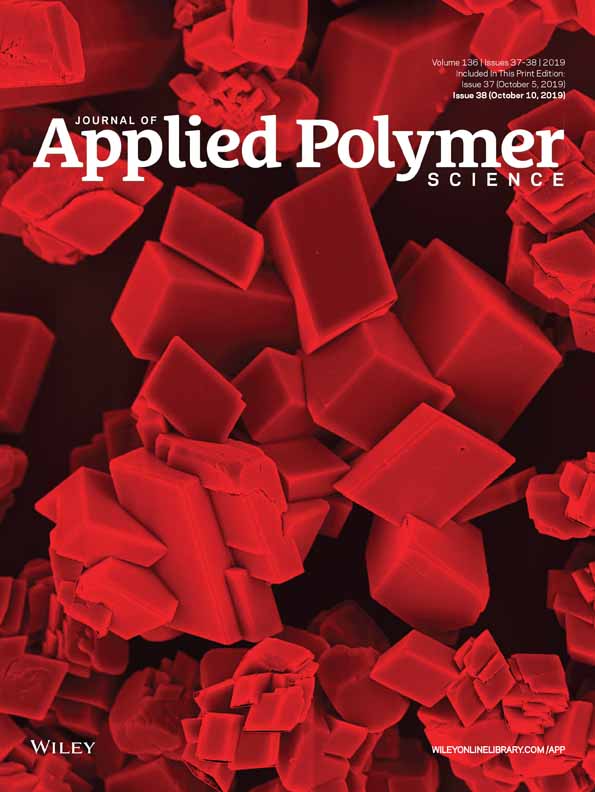Environmentally friendly synthesis and photopolymerization of acrylated methyl ricinoleate for biomedical applications
ABSTRACT
In this study, we aimed to develop an efficient synthesis and photopolymerization of acrylated methyl ricinoleate (AMR) for biomedical applications. During the first step of the synthesis, methyl ricinoleate (MR) and boric acid were esterified via azeotropic distillation in toluene. Afterward, MR–boric acid ester was acrylated with acrylic acid at 165 °C via a boric acid ester acidolysis reaction. The bulk photopolymerization of AMR was performed in the presence of the photoinitiator 2,2-dimethoxy-2-phenyl acetophenone (DMPA) under 365 nm UV irradiation. Even with the use of 0.4% DMPA, a 35% monomer conversion was achieved within 30 min. Moreover, AMR, the plant-oil-based monomer, was also copolymerized with N-isopropyl acrylamide to obtain thermoresponsive hydrogels on the glass surface for biomedical applications. The synthesized materials were characterized by Fourier transform infrared (FTIR) spectroscopy, 1H-NMR spectroscopy, and thermal characterization via thermogravimetric analysis (TGA) and differential scanning calorimetry techniques. The surfaces were characterized by FTIR and Energy Dispersive X-ray (EDS) spectroscopy. © 2019 Wiley Periodicals, Inc. J. Appl. Polym. Sci. 2019, 136, 47969.




